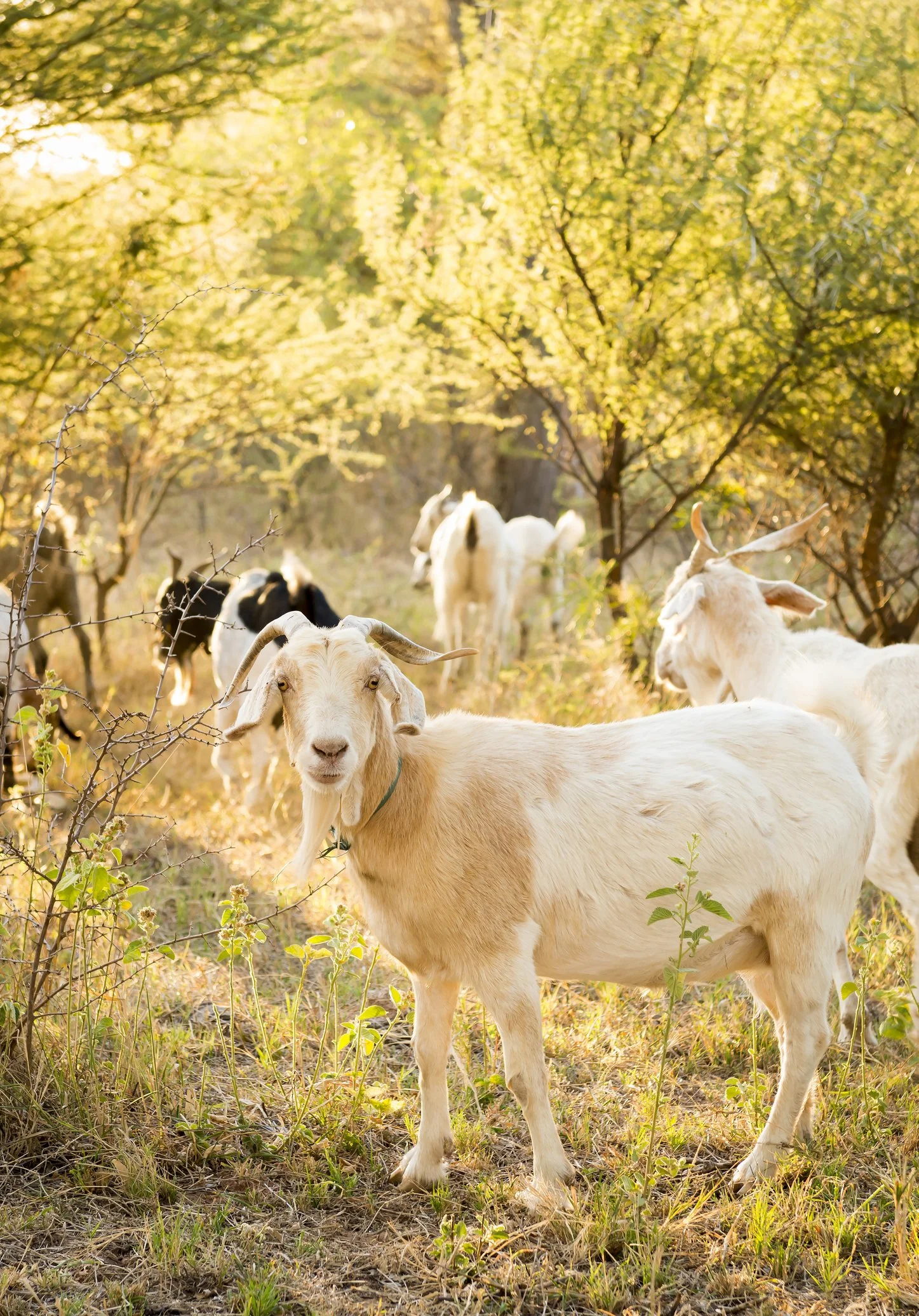Converse Sustainable
Clearing
Looking for a smarter way to clear your land? Goats offer a cost-effective and eco-friendly solution! These natural brush-eaters tackle tough vegetation without damaging soil, help prevent erosion, and are easily managed with movable fencing for controlled grazing.
Preserve habitats and promote sustainable forestry; let goats do the work without harmful over-clearing. Make the green choice for your land today!
Step-By-Step Method
Site Assessment and Deployment:
We use mapping and on site inspections to find areas with thick undergrowth and invasive species. Then we set up a containment system in specific sections for rotational grazing.
Goat-Grazing Vegetation Management:
We then deploy a herd of goats to consume overgrown brush, invasive plant species, and unwanted vegetation in designated areas. Their natural browsing behavior helps maintain forest health while enriching the soil.
Waste Repurposing and Soil Improvement:
Goat droppings will naturally fertilize the soil, reducing the need for chemical fertilizers and supporting reforestation efforts. Any excess organic material will be composted for use in erosion control projects.
Invasive Species Management
Browsing and Clearing
Goats are natural browsers and readily consume invasive plants like buckthorn, poison ivy, wild parsnip, and garlic mustard. They can effectively clear vegetation, especially in areas difficult to access by foot or equipment.
Natural Seed Destruction
Goats consume buckthorn fruits, and studies show that only a small percentage of the seeds pass through their digestive system intact and viable. And getting rid of species before they go to seed will help to reduce future regrowth year after year.
Habitat Restoration
By removing invasive species effectively, goats play a significant role in restoring native plant communities while simultaneously improving wildlife habitat. Their natural grazing behavior helps to control the spread of these non-native plants, allowing native species to thrive and flourish in their natural ecosystems.
Under Hoof Seeding
Goats can be used to spread native grass seeds as they graze, mimicking how native plants were historically dispersed by animals.
Reduced Herbicide Use
Goat grazing can significantly reduce the need for herbicide spraying, making it a more environmentally friendly approach to invasive species management.
Variety of Applications
Goat grazing is being used in a variety of settings, including state parks, city parks, private land, and conservation districts.
Using goats on hills and shorelines allows for a safer and cleaner disposal of brush.
What you are looking for when you quote?
Vegetation Type – Confirm the brush includes species goats can safely eat (e.g., buckthorn, poison ivy, blackberry).
Terrain Conditions – Assess slopes, water access, and obstacles (logs, fences, hazards).
Access to Shelter or Shade – Provide shade via trees or temporary structures.
Grazing Time Estimate – Typically, goats clear an acre in 3–7 days, depending on density.
Herd Size – The number of goats needed depends on brush density.
Check for Toxic Plants – We check for plants like oak (acorn & leaves), plants in the nightshade family, milkweed, water hemlock, and many others.


